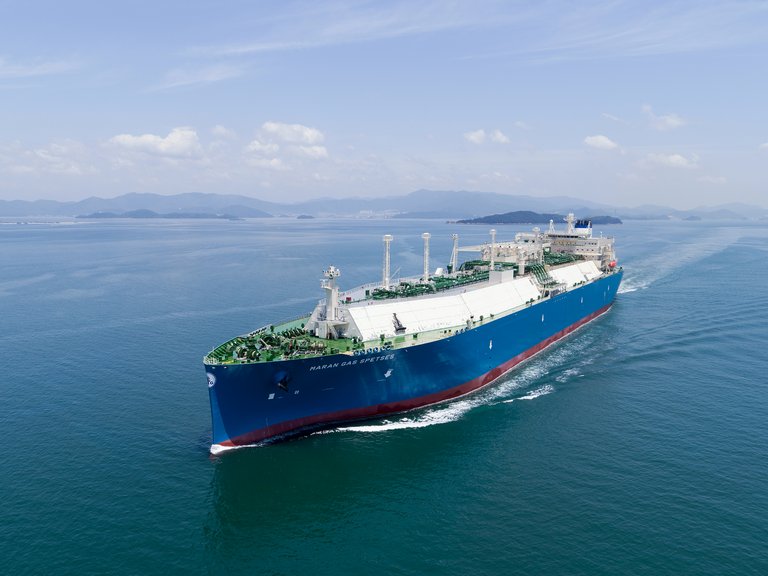Story #1
A broad and innovative compressor range to decarbonize the marine industry

In 2023, the International Maritime Organization (IMO) agreed to achieve a reduction of 20% of its greenhouse gas emissions by 2030 and reach net-zero emissions by 2050. Currently, the marine industry contributes 3% of global greenhouse gas emissions. Meeting the new sustainability targets drives a transition, where compressors play a pivotal role.
The IMO’s commitment to decarbonization has prompted various approaches for greening ships, ranging from alternative fuels for propulsion systems to carbon capture from exhaust gases. While not all of these approaches are technically mature, they represent important steps toward a more sustainable maritime industry.
Liquefied Natural Gas established as a transition fuel
Liquefied Natural Gas (LNG) is a proven bridge technology, with a potential reduction of 25% greenhouse gas emissions compared to ships using traditional fuel oil or diesel (if compared on a tank-to-wake basis). LNG bunkering infrastructure is continually expanding, with fuel already available in most major shipping hubs.
Recent years have witnessed a strong uptake of LNG in new ship builds, driven by a combination of environmental benefits and competitive fuel prices. This trend is gaining momentum, propelling the marine industry toward a more sustainable future.
Manufacturers with solid experience from LNG shipping are now supporting the energy transition in the merchant shipping sector.
Burckhardt Compression is a major player in the LNG market
Burckhardt Compression Laby® Compressors of type 2K70 and trunk piston high-pressure compressors of type MHP are installed on large-size container ships and oil tankers to supply LNG boil-off gas as fuel to the ship engines. K-type Laby® Compressors are handling the boil-off gas management on LNG bunker ships, refueling the LNG-fueled merchant vessels. Larger-size Laby®-GI Compressors are installed on LNG carriers and floating storage and regasification units (FSRU), playing the key role of cargo handling during LNG long-distance transportation and trading. Finally, D-type Laby® Compressors can be found all over the globe in LNG onshore receiving terminals.
All of the mentioned Burckhardt Compression products are of gas-tight design, avoiding unwanted fugitive greenhouse gas emissions. Due to the simple and robust design and the proven reliability, our products are well accepted all across the LNG value chain.
Future outlook: innovation and sustainability as key market drivers
The marine industry’s fuels will continue to evolve in the future. Experts predict that several sources of energy will coexist to cover the different use cases and needs of the shipping industry.
Bio-LNG, derived from biomass or e-LNG, based on green hydrogen, could use the same infrastructure and compressors as LNG.
Green ammonia is also a potential energy carrier and marine fuel, for which engine manufacturers have already developed solutions. Transporting green ammonia requires compressors which are very similar to LPG compressors, for which Burckhardt Compression has a very strong offering.
Onboard carbon capturing could be one of the potential solutions for some use cases. The technology allows the separation of CO₂ from the ship engine’s exhaust gases using a chemical process. The removed CO₂ is then reliquefied in a compression process for onboard storage – another potential future application for Burckhardt Compression products in the marine market.
Our products are poised to seamlessly adapt to these evolving needs. Specifically, when cryogenic liquid fuels, boil-off gas management, and refrigerated fuels come into play, our offerings excel.
Burckhardt Compression marine products are of gas tight design.